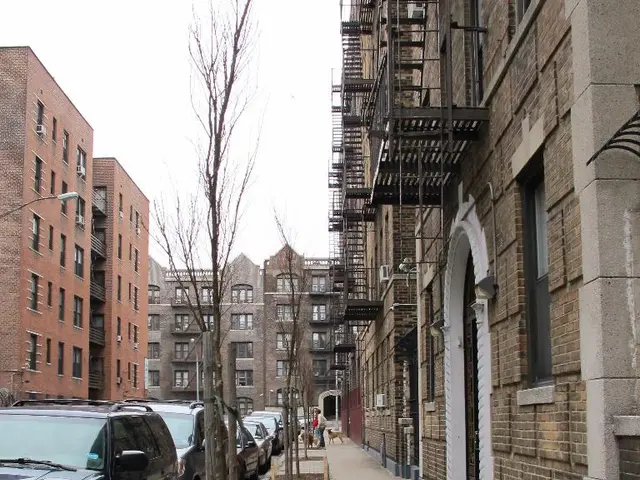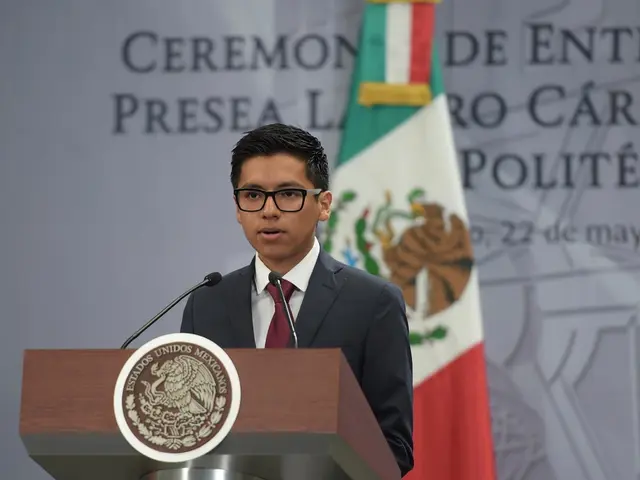Teachers in North Rhine-Westphalia Split Over Inclusive Learning
Barriers to Inclusion Reported by Teachers in Survey Results - Teacher survey reveals various challenges to fostering inclusivity
Here's the lowdown on a recent survey by Forsa, commissioned by the Association of Education and Education (VBE). It reveals that while some teachers support inclusive learning for children with and without disabilities, many find it impractical under current conditions.
A whopping 43% of the 520 teachers surveyed in North Rhine-Westphalia believe joint instruction is generally beneficial. However, they admit it's more favorable for kids with disabilities to learn in special schools, given the obstacles they currently face. About 32% think it's best for children with disabilities to attend special schools, while 18% don't find joint instruction practical.
Minister of Education, Dorothee Feller (CDU), recognizes that inclusive learning in regular schools and teaching in special schools are complementary, both contributing to educational justice. Yet, many teachers cite the lack of prerequisites and hurdles to successful inclusion in the classroom, according to the education union VBE.
One in five teachers claims regular schools can't meet the increased support needs of children with disabilities. They advocate for more special education expertise, smaller learning groups, and other measures to address these concerns.
The VBE identified several deficiencies: a lack of specialist staff, insufficient training, and too few workshops. Staff shortages often hinder social interaction, making it tough to achieve social learning goals, the union asserted.
Average inclusive classes in NRW have 21 students, with 4.5 children needing special educational support. This is less favorable than the national average, VBE says. Almost all respondents desire double staffing of a teacher and special education teacher in inclusive classes, but only 2% work in this arrangement continuously, while 69% say it happens sometimes. Nearly half of the respondents report their schools aren't barrier-free at all.
Many teachers feel neglected in their challenging task, the VBE notes, with 85% expressing dissatisfaction with the state's inclusion policy. They argue for more double staffing, multi-professional teams, modern diagnostics, and appropriate learning materials.
The Ministry of Education defends its investments in inclusion but acknowledges progress is made gradually. The SPD opposition faults the government for small steps and demands the long-awaited action plan and a discussion in the state parliament.
According to the UN Convention, children with disabilities have had the right to inclusive education since 2009, the goal being equal participation and prevention of exclusion. Inclusive learning should offer more opportunities and support for students with disabilities while benefiting their non-disabled peers by reducing prejudices and increasing tolerance.
Inclusive learning can face challenges such as a lack of resources, teacher training, social integration, and curriculum adaptation. On the flip side, potential solutions might include professional development for teachers, resource allocation, collaborative planning, inclusive curriculum design, and community engagement. To tackle these issues effectively, it would be beneficial to delve deeper into the specific findings of the Forsa survey and related educational research in North Rhine-Westphalia.
- The education union VBE in North Rhine-Westphalia has highlighted several issues within the community's inclusive learning policy, including a lack of specialist staff, insufficient vocational training for teachers, and inadequate resources.
- As part of education-and-self-development and the general news, the lack of prerequisites and hurdles to successful inclusion in the classroom have led to dissatisfaction among teachers in North Rhine-Westphalia, who advocate for more vocational training, double staffing, multi-professional teams, and modern diagnostics.







